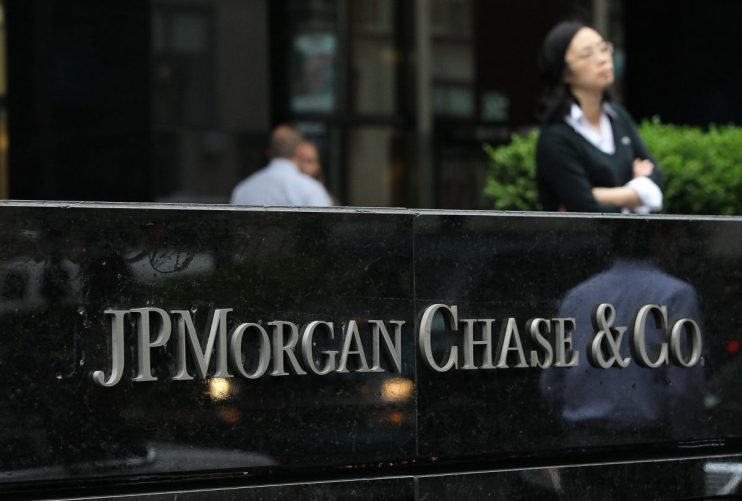JP Morgan profits up 52 per cent as it benefits from SVB chaos with influx in deposits of $37bn

JP Morgan reported a surge in profit in the first quarter and an increase in deposits as the Wall Street giant weathered turmoil in the banking sector to deliver record results.
Profit at America’s largest bank soared 52 per cent to hit $12.6bn while its diluted earnings per share was $4.10, significantly ahead of consensus compiled by Refinitiv.
JP Morgan posted a record revenue of $39.3bn, also comfortably ahead of consensus. Its shares were trading more than five per cent higher in pre-open trading.
Chief executive Jamie Dimon said “years of investment and innovation, vigilant risk and controls framework, and fortress balance sheet allowed us to produce these returns”.
The consumer & community bank – JP Morgan’s largest division – recorded a particularly strong quarter, with income rising 80 per cent thanks to higher interest rates. Dimon noted that the US economy continues to be on “generally healthy footings”.
Rising interest rates have been a boon for banks as it means they receive more interest income. Year-on-year JP Morgan saw a 49 per cent increase in net interest income and a three per cent increase on the prior quarter.
JP Morgan also saw a $37bn increase in deposits compared to the prior quarter suggesting it had been a beneficiary of the flight to safety following the collapse of Silicon Valley Bank.
Banks’ deposit base will face heavy scrutiny after money market funds saw inflows of $376bn in March. While these funds had seen inflows earlier in the year, their popularity surged in the wake of SVB’s collapse and concerns over deposit security.
Analysts had expected that larger banks would likely be net beneficiaries, although there were concerns that they too could see a diminishing deposit base.
However, Dimon highlighted that “storm clouds that we have been monitoring for the past year remain on the horizon, and the banking industry turmoil adds to these risks.”
JP Morgan set aside $2.3bn for credit losses which was roughly the same as the prior quarter but a 56 per cent increase on the same period last year.
While the financial system seems to have weathered the storm in the immediate aftermath of SVB’s collapse, experts are concerned that banks – particularly smaller banks – will adopt more conservative lending strategies in order to shore up their capital positions. This will likely slow down economic activity, potentially pushing the US into recession.
“Financial conditions will likely tighten as lenders become more conservative, and we do not know if this will slow consumer spending,” Dimon said.
The lender recorded a one per cent fall in total loans compared to last quarter.
JP Morgan is the first US bank to report first quarter earnings. Citi and Wells Fargo will release their figures later today.